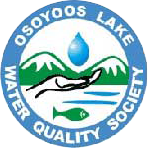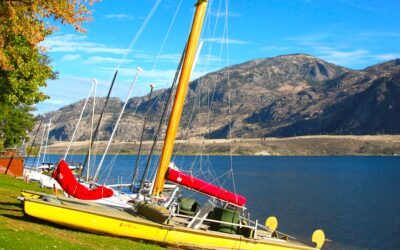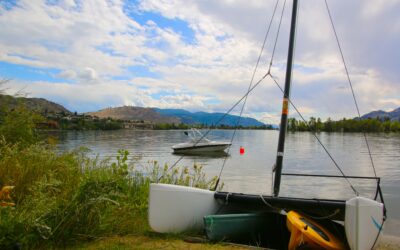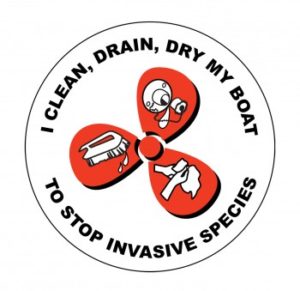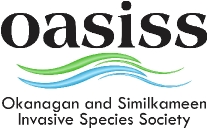Osoyoos Lake Water Quality Society
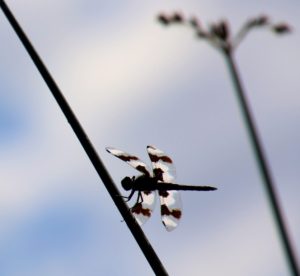
One of the many joys awaiting kayakers in the oxbows at the north end of Osoyoos Lake are the Spotted Dragonflies that love to entertain. These whimsical insects enjoy darting around the edges of the wetlands showing off their effortless flying skills. They are a challenge to photograph in a kayak. If you find one resting, take your photos quickly. Photo Credit: Neil Bousquet
Why is Osoyoos Lake Important?
The lake is home to a large variety of aquatic life and several endangered species.
It is a crucial waterway for the Columbia River salmon run.
It supplies water for homes, businesses, agriculture, and recreation.
It’s the number one attraction in Osoyoos for residents and visitors.
Osoyoos Lake has its own ecosystem. Insects, fish, predators, lakeshore vegetation – even things like temperature and oxygen content, are inter-related. Take out a tiny part of the ecosystem and the entire balance is upset, creating a ‘domino’ effect. With an increase in population and development, it is everyone’s responsibility to protects its vulnerable water quality and surrounding aquifers.
The Society
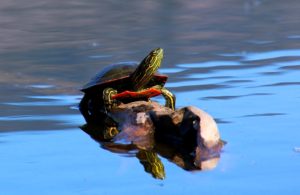
Howard, the Painted Turtle spotted on log in Osoyoos Oxbows. Photo Credit: Neil Bousquet
The Osoyoos Lake Water Quality Society was founded in 1991 by community members to help promote public awareness of the lake, covering issues such as conservation, pollution, and lake management. It is a nonpolitical, non-profit charitable organization run entirely by volunteers.
Challenges to Osoyoos Lake Health
- Increased lakeshore development, altering the shoreline and destroying fish habitat.
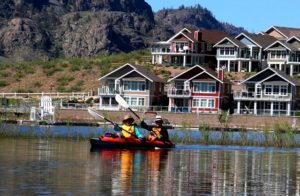
Spring kayaking near Osoyoos Cottages. Photo Credit: Neil Bousquet
- Wetlands and oxbows – nature’s water filter and answer to flood control – have also disappeared.
- An increase in the geese population. Their droppings can carry disease such as E. coli.
- Increased demands on the water supply by both agriculture and residential. Water in the Okanagan is not an infinite resource.
- Increase in boat traffic resulting in erosion, water and noise pollution, and safety issues.
- Decades of runoff from agricultural practices and nutrient deposits directly into the Lake.
- Runoff from streets via storm drains which lead directly to the Lake.
- An accumulation of pollution from the Okanagan River and communities to the north of us.
- An increase of chemicals has created ideal conditions for milfoil and other aquatic weeds.
Recent Posts
Save the DATE Sat Oct 26 and BUY your tickets before we sell out!
Honoring our volunteers at the Osoyoos Lake Water Quality Society
The Osoyoos Lake Water Quality Society (OLWQS) held its annual Volunteer Appreciation event in September. OLWQS is privileged to have such wonderful volunteers giving their time to work on our research boat collecting important data which goes to the Ministry Of...
